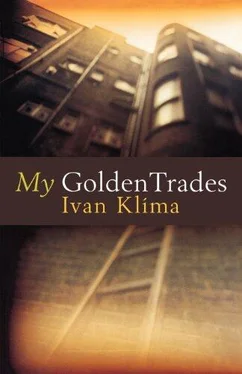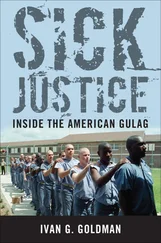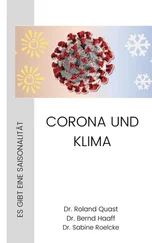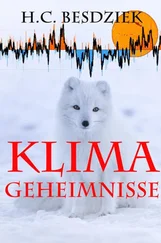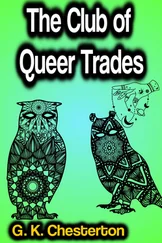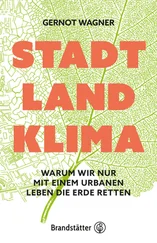Ivan Klima - My Golden Trades
Здесь есть возможность читать онлайн «Ivan Klima - My Golden Trades» весь текст электронной книги совершенно бесплатно (целиком полную версию без сокращений). В некоторых случаях можно слушать аудио, скачать через торрент в формате fb2 и присутствует краткое содержание. Год выпуска: 1998, Издательство: Granta UK, Жанр: Современная проза, на английском языке. Описание произведения, (предисловие) а так же отзывы посетителей доступны на портале библиотеки ЛибКат.
- Название:My Golden Trades
- Автор:
- Издательство:Granta UK
- Жанр:
- Год:1998
- ISBN:нет данных
- Рейтинг книги:4 / 5. Голосов: 1
-
Избранное:Добавить в избранное
- Отзывы:
-
Ваша оценка:
- 80
- 1
- 2
- 3
- 4
- 5
My Golden Trades: краткое содержание, описание и аннотация
Предлагаем к чтению аннотацию, описание, краткое содержание или предисловие (зависит от того, что написал сам автор книги «My Golden Trades»). Если вы не нашли необходимую информацию о книге — напишите в комментариях, мы постараемся отыскать её.
My Golden Trades — читать онлайн бесплатно полную книгу (весь текст) целиком
Ниже представлен текст книги, разбитый по страницам. Система сохранения места последней прочитанной страницы, позволяет с удобством читать онлайн бесплатно книгу «My Golden Trades», без необходимости каждый раз заново искать на чём Вы остановились. Поставьте закладку, и сможете в любой момент перейти на страницу, на которой закончили чтение.
Интервал:
Закладка:
The upper part of the stone had been properly shaped, while the lower part looked like an undignified, ridiculous leg. We carried it from the car and carefully lowered it into the hole. Kos then sat on the edge of the hole, held the stone in place with his knees and, armed only with the spirit-level, the plumb-line and his patience, he began his duel with a piece of rock that I could scarcely lift.
I was now sitting a little way off, watching him work
with the precision of a clock-maker on a 150 pound chunk of granite. Just when it seemed that the plumb-line was properly centred at last, the surveyor would set his level and the stone, with its ridiculous, misshapen leg, would refuse to sit true. He would then try to straighten it with gentle, almost invisible movements, but now the plumb-line was off-centre and the whole annoying operation would start all over again.
Finally, in a whisper, as though he were afraid his breath might unbalance the stone, he said: 'That's it!' The stone stood true in all its axes. So I took some earth, and carefully, so as not to move either the tripod or the stone, which Kos was still holding firmly clamped between his knees, I tipped it into the hole. At the same time, I felt a sense of relief, even satisfaction, as though I had just placed a word in a sentence so firmly and precisely that no one could question it, and the sentence would sound exactly as I had meant it to.
MrK
Director
The Office of Social Security
Prague
Dear Mr K.
By casting doubt on the nature of my work, an activity that, until now, I and several other people considered artistic, you have played a role in my becoming for a time at least, a surveyor's assistant. I consider it proper, therefore, to report to you on my progress so that, among other reasons, you may lack no opportunity to cast doubt on this work also.
In evidence of my work as a surveyor's assistant, may I provide you with the following information: during the month of September, I have cleaned and painted seventy-nine stakes, dug out approximately eight cubic metres of earth, set thirty concrete bases and five mark-stones in the ground. In various walls, mostly church and cemetery walls, I have chiselled holes for five bolts. I have also assisted in most of the surveying and related work.
I am aware that it is only with the approval of your office or rather of those who have been summoned to its head (I am employing the Russian turn of phrase favoured in your circles) that reality becomes genuine reality and work becomes genuine work, and I am not succumbing to any false or inflated notions about what I have accomplished in the field of surveying. It is entirely possible that I am living in a state of complete and utter illusion. I am truly curious about what conclusions you will come to.
Yours sincerely
K. (Surveyor's Assistant)
Home
ON FRIDAYS WE would return to town around noon and, having removed the tools from the car and swept out the week's debris so that the car looked almost clean, I'd hurry inside to change in time to catch the afternoon train.
The station was neat and full of flowers, and I was usually the only passenger there. The train stopped here, it seemed, out of nostalgia, as a gesture to the old days, which I could scarcely remember, days when there had been farmers' markets, fairs and isolated farm cottages in the countryside with women who would take the train into town to do the shopping.
When the train arrived — a single, red locomotive with a driver and perhaps three or four passengers, usually Vietnamese men — I would get on, dust off a seat, and sit down. Then I would look out of the window and watch as autumn settled on the now familiar countryside, as the last fields of sugar beet were harvested, as the reeds in the marshlands turned ochre and grey, as the tamaracks yellowed and the dogwood and sumacs burned an ever more brilliant red.
I have a home, of course, but have always lived in a city. So there is no country landscape to which I can properly
return. Yet I've always enjoyed walking in the countryside with my wife. Because I am, by nature, introverted, I liked to absorb silently the multitude of shapes, sounds, colours and odours, the fragments of accidental conversations and scenes. My wife, on the other hand, would always look for analogies to what we saw. Everything was transformed in her mind into a cluster of images mingling dream and reality. That was her way of leaving the narrow pathways which we, like all walkers, had to keep to.
But we didn't have a landscape of our own outside the city, and we never found it.
The local train took me to a station where I would transfer to a train going to Prague. Here, the platform was crowded with people who, like me, were going home from work: men with leather tool-bags hanging on their shoulders, often wearing only dirty overalls; and young factory girls from the gramophone plants, looking as alike as the products they made.
The windows of this train were so filthy that the countryside seemed to have vanished in a fog. I'd find a seat that was free and, if possible, not broken, and fall asleep immediately from exhaustion.
At home, my wife would be expecting me, glad that we were together again, and already annoyed that I had to leave again on Monday. Why didn't I quit? What sense did it make, wasting my time painting dumb stakes, digging rocks out of the ground and straining my heart, my back or whatever it was that hurt that weekend?
I'd tell her I'd stick with it until we finished the work to be done outside. I didn't tell her I actually enjoyed leaving those pathways that, as an ordinary walker, I would have to follow; that I got pleasure from coming into close touch
with the landscape.
My wife would accuse me angrily of being pig-headed. There's so much work to be done here at home. Our son is redecorating his room, and if I was so keen to work with my hands, why didn't I help him out?
So I would change into my blue overalls and go to chip the plaster off a few bricks.
There is a Greek fable about a giant, Antaeus, the son of Poseidon and Gaia, goddess of the earth. Antaeus would challenge anyone at all to a duel because he knew he was invincible, for whenever he sank to the ground, his mother would renew his strength. He never once lost, until one day he encountered Heracles, who held him up in the air and so was able to strangle him to death. The Greeks, of course, were on Heracles's side; he was, I suppose, their favourite hero. Nevertheless, the unconscious wisdom of this myth warns us not to let any contemporary Heracles hold us away from the earth for too long.
When the bricks were clean, I'd take a pile of letters that had come for me during the week and read them.
From her home in Sweden, my translator sent me this letter:
We have had a magnificent hot summer and after a few lean years we can be delighted with the enormous harvest of fruits, vegetables and mushrooms. But how can we enjoy them when there is radioactivity still lurking in the cultivated parts of Sweden, especially in the most fertile lands? People are ignoring the warnings, and I'm terrified of what the results of their indifference might be. We have a good monitoring system for our air, water and land, and that's why we know that the catastrophe is a fact. Thousands of seals
have died from a virus we have not yet been able to identify. Even our water fowl are affected, and it isn't known whether that was caused by the same virus that struck the seals. The fish population is decreasing. Hunters in the north have been shocked to learn that deer contain more than 45,000 bequerelles, despite all the time that has passed since Chernobyl. Every day there's a new warning, or new facts about the catastrophe. They find, for instance, that they've added thirty chemicals that are harmful to human health, especially children's health, to ice cream in order to make it last in storage. Red peppers imported from Spain are treated with a poison, and their skins are as tough as orange peel. Another panic: tampons contain such a high percentage of dioxin that they are carcinogenic. The news about the decay of the ozone layer, especially around the poles, is terrifying. And nothing is being done to lower the number of cars on the road. This spring we had an excellent exhibition on the destruction of nature and historical buildings, which are almost all damaged beyond recovery. When I come to Prague, I'll bring you a catalogue. .
Читать дальшеИнтервал:
Закладка:
Похожие книги на «My Golden Trades»
Представляем Вашему вниманию похожие книги на «My Golden Trades» списком для выбора. Мы отобрали схожую по названию и смыслу литературу в надежде предоставить читателям больше вариантов отыскать новые, интересные, ещё непрочитанные произведения.
Обсуждение, отзывы о книге «My Golden Trades» и просто собственные мнения читателей. Оставьте ваши комментарии, напишите, что Вы думаете о произведении, его смысле или главных героях. Укажите что конкретно понравилось, а что нет, и почему Вы так считаете.
